History and Origin of the German Shepherd Dog
Origins in Germany
The German Shepherd Dog (GSD) has a rich history rooted deeply in Germany. Developed in the late 19th century, the breed was born out of a need for a versatile herding dog that could manage sheep. German cavalry officer Max von Stephanitz is credited with the creation of the German Shepherd during this time.
He used various herding dogs from Germany, carefully selecting traits that included intelligence, loyalty, and strength. The pivotal moment came when he encountered a dog named Hektor Linksrhein, who would become the first registered German Shepherd. This meeting marked the beginning of a breed that would eventually gain widespread recognition.
- Key Origins Timeline:
- Late 1800s: Max von Stephanitz begins breeding efforts.
- 1899: The Verein für Deutsche Schäferhunde, the first breed club, is established.
- Early 1900s: The breed expands internationally, particularly to North America.
Through these early efforts, the foundation for what we now know as the German Shepherd was solidified, marking the start of their journey into various roles beyond herding.
Development of the Breed
As the years progressed, the German Shepherd evolved from a herding dog into a highly versatile working breed. During World War I and II, they were employed extensively by military and police forces due to their trainability and courage. Their ability to perform various tasks—from search and rescue missions to being trained as guide dogs for the visually impaired—solidified their place in society.
Notable points include:
- Military and Police Roles: The breed’s capacities led to widespread use in guarding, searching, and even message-carrying.
- Cultural Impact: Iconic characters in films and media brought the German Shepherd into the limelight, enhancing its popularity as a family pet and working dog alike.
Today, the German Shepherd remains one of the most recognized and respected breeds worldwide, admired for their loyalty and intelligence, making them a remarkable companion in many different settings.
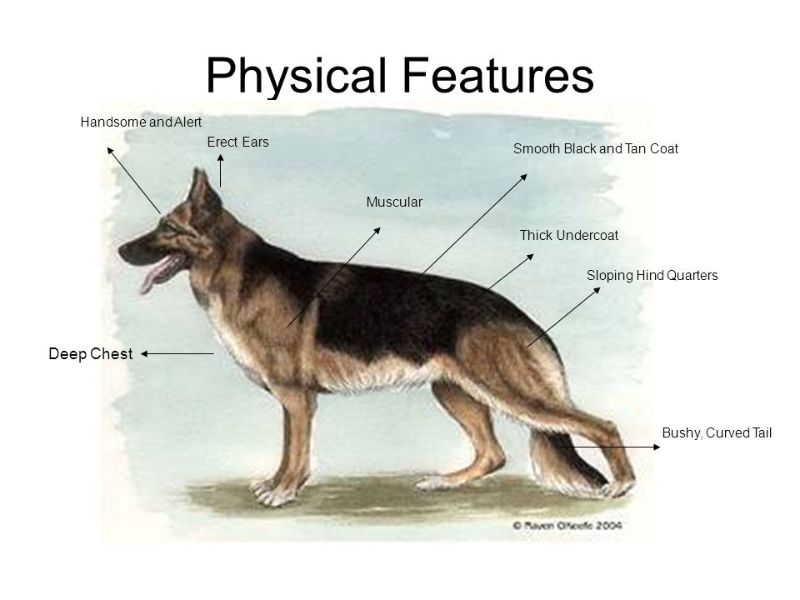
Physical Characteristics of the German Shepherd Dog
Body Structure and Proportions
German Shepherds are easily identifiable due to their distinct and captivating physical traits. They boast a well-balanced, muscular build, showcasing smooth and graceful sloping curves rather than an angular appearance. This breed is medium to large, with males typically standing between 24 to 26 inches tall and females ranging from 22 to 24 inches. Their athleticism is evident in their gait; while they adopt an easy-going trot, they can quickly pick up speed when motivation strikes.
- Body Structure Highlights:
- Height: 22 to 26 inches (depending on gender)
- Weight: 50 to 90 pounds
- Build: Muscular and agile, allowing for impressive strength and speed
Owning a German Shepherd means appreciating their elegant proportions, which are a testament to their working lineage.
Coat Types and Colors
The German Shepherd’s coat further enhances its majestic appearance. They possess a double coat, which is medium-length and composed of a soft undercoat topped by a dense outer coat. However, prepare for shedding; GSDs often require regular grooming to keep their coat healthy and minimize hair around the house.
When it comes to color, the most recognizable German Shepherd features the classic black and tan coat, but they come in an impressive variety of colors, including:
- Color Variations:
- Black
- Black & Cream
- Black & Red
- Black & Silver
- Gray
- Sable
- White
- Liver
- Blue
- Bi-Color
With their array of colors and distinct coat types, German Shepherds are not just highly capable working dogs but also beautifully diverse in appearance!
Intelligence and Trainability
Ranking in Intelligence Among Dog Breeds
One of the standout features of the German Shepherd is its remarkable intelligence. In fact, they are often ranked among the top three smartest dog breeds worldwide, alongside Border Collies and Poodles. This high intelligence stems from their original breeding as herding dogs, where quick decision-making and problem-solving were essential to manage and protect livestock.
- Key Intelligence Traits:
- Quick learners: They grasp commands and tasks faster than many other breeds.
- Eager to please: This innate desire makes training a more enjoyable experience for both dog and owner.
- Adaptive problem solvers: German Shepherds can often figure out puzzles and complex tasks independently.
Their cognitive abilities marvel pet owners and professional trainers alike, making them an ideal candidate for various roles from service dogs to police work.
Training Traits and Capabilities
The combination of intelligence and trainability makes the German Shepherd a joy to work with. Their strong desire to please their handlers contributes to their responsiveness in training, especially when rewarded with treats or praise. Here are some noteworthy training traits:
- Obedience Training: They excel in learning basic commands and can advance to complex tasks with ease.
- Socialization Skills: Early exposure to different people, pets, and environments is crucial to development, ensuring they become well-rounded companions.
- Positive Reinforcement: This breed responds exceptionally well to reward-based training methods, making sessions effective and enjoyable.
Owning a German Shepherd means investing time in their training, but the rewards—building a loyal, obedient companion—are immeasurable. Their intelligence, combined with consistent training, fine-tunes their abilities, enhancing their roles as exceptional family pets and reliable working dogs.
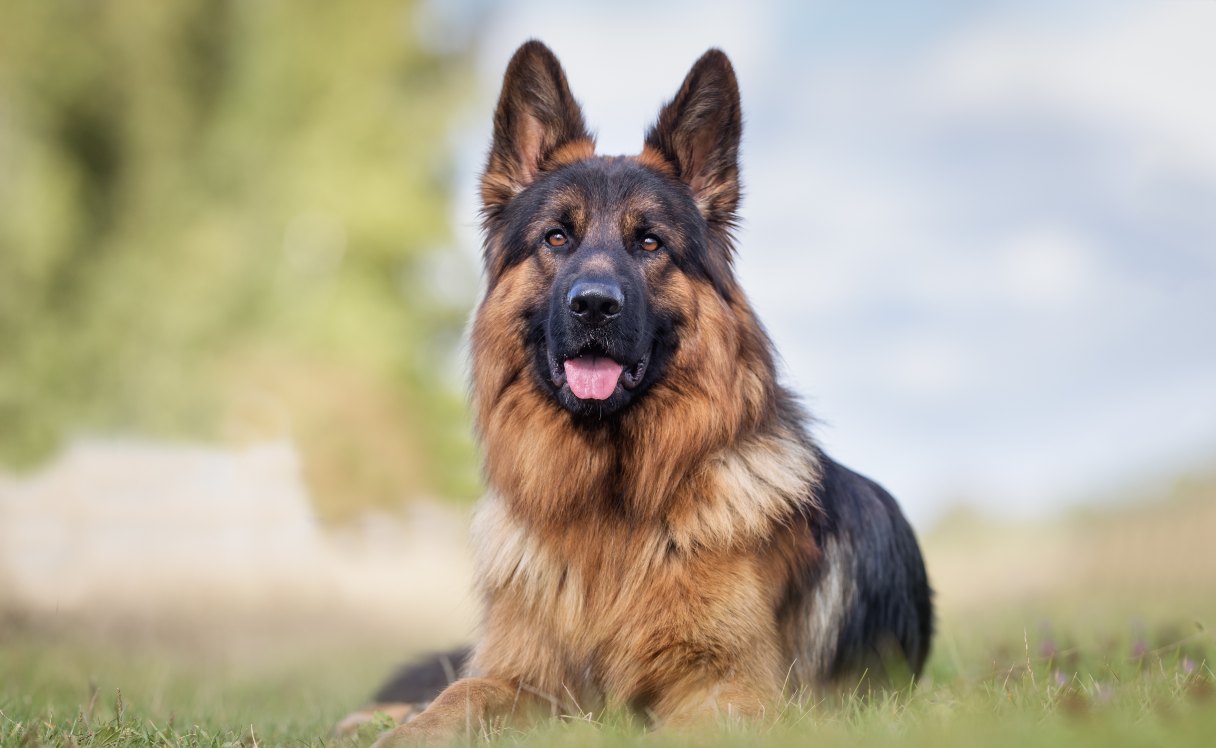
Working Abilities and Functionality
Roles in Various Fields (e.g., Police, Military, Search and Rescue)
German Shepherds have earned a well-deserved reputation for being exceptional working dogs across various fields. Their unique combination of intelligence, loyalty, and agility makes them the go-to breed for numerous roles. For example, many police departments and military units rely on their sharp senses and strong work ethic.
- Key Roles:
- Police K-9s: Engage in drug and explosives detection, search and apprehension of suspects, and crowd control.
- Military Working Dogs: Used for reconnaissance, tracking, and securing areas during operations.
- Search and Rescue: Renowned for their ability to navigate difficult terrains, these dogs aid in locating missing persons during emergencies.
Their unwavering loyalty and ability to focus on tasks for extended periods ensure they thrive in these demanding environments.
Herding Instincts and Abilities
Originally bred for herding sheep, German Shepherds possess a remarkable instinct for managing livestock. Their innate intelligence and strong physical capabilities allow them to organize and protect herds effectively.
- Herding Highlights:
- Natural Protectors: They instinctively guard livestock, using their presence to deter predators.
- Agile Movements: Their agility helps them navigate various terrains, from open fields to rugged hills.
- Command Response: German Shepherds respond well to commands specific to herding, like directing livestock to designated areas.
These traits not only make them proficient herding dogs but also showcase their adaptability across different roles, blending seamlessly from the fields to the frontlines. Their versatile skills and commitment to their work highlight why these dogs are among the most respected working breeds in the world.

Temperament and Personality Traits
Loyalty and Affection Towards Owners
When it comes to loyalty, few breeds can rival the German Shepherd. Known for their unwavering commitment, these dogs form deep bonds with their families, making them affectionate companions. They thrive on companionship and often seek out interaction with their owners, whether it’s snuggling on the couch or participating in outdoor activities.
- Affectionate Traits:
- Strong Bonds: They create lasting connections and are known to be particularly gentle with children.
- Desire to Please: Their eagerness to make their owners happy translates into a strong willingness to obey commands.
Imagine coming home after a long day to be greeted by your German Shepherd trotting toward you, tail wagging excitedly—this genuine love is what makes them so special.
Protective Nature and Discernment
German Shepherds are inherently protective, making them excellent guardians for families. Their discernment allows them to sense potential threats, often leading them to be wary of strangers.
- Key Protective Traits:
- Vigilant Watchdogs: With a natural instinct to protect, they keep a close eye on their environment, alerting their owners to any unusual activities.
- Fearless Defenders: In case of danger, they will bravely defend their family, showcasing their courageous nature.
A personal experience shared by a German Shepherd owner highlighted their protective instinct. While out for a walk, their dog would closely monitor passersby, ensuring their family felt safe at all times. This blend of loyalty, affection, and protection solidifies the German Shepherd’s role as both a loving pet and a steadfast guardian.
Health Considerations and Common Issues
Overall Health and Lifespan
German Shepherds are generally considered healthy dogs, boasting a lifespan of around 7 to 10 years. However, like many breeds, they can be predisposed to specific health concerns that potential owners should be aware of. Regular veterinary check-ups and a balanced diet are key to ensuring your German Shepherd lives a long, fulfilling life.
- Key Health Factors:
- Lifespan: Typically 7 to 10 years.
- Active Lifestyle: Their wellbeing often depends on regular exercise and mental stimulation.
- Routine Care: Regular vet visits ensure early detection and management of health issues.
For many German Shepherd owners, preventive care becomes a vital aspect of their pet’s health regimen, keeping their loyal companions healthy and vibrant.
Common Genetic Health Problems
Despite their hardy nature, German Shepherds are prone to several genetic health issues, including:
- Hip Dysplasia: A condition where the hip joint doesn’t fit properly, leading to arthritis.
- Elbow Dysplasia: Similar to hip dysplasia, this affects the elbow joint’s development.
- Degenerative Myelopathy: A progressive neurological disorder that can lead to hind limb weakness.
- Bloat: A life-threatening condition that causes the stomach to twist.
- Common Cancers: German Shepherds face a higher likelihood of cancers such as hemangiosarcoma and osteosarcoma.
Being aware of these potential health problems allows owners to take proactive steps. Regular check-ups and healthy lifestyles can mitigate many risks, ensuring a happy and healthy life for German Shepherds.
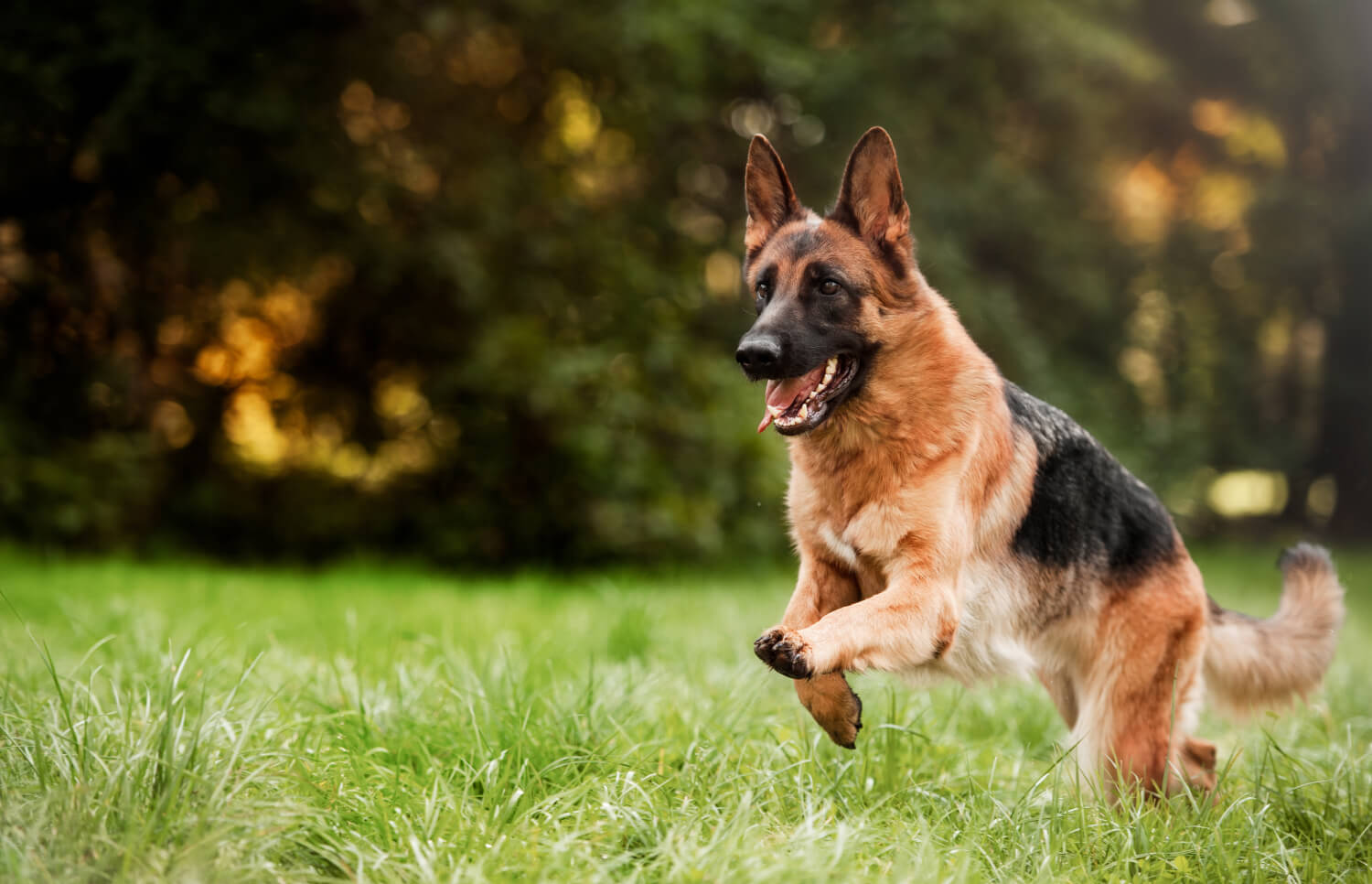
Care and Maintenance
Exercise Needs and Activity Levels
German Shepherds are known for their incredible energy and require significant exercise to keep them happy and healthy. These active dogs thrive in environments that provide both physical and mental stimulation. Ideally, they need at least 1 to 2 hours of exercise each day, which can include activities like:
- Long walks or runs: Encourage cardiovascular health.
- Games of fetch: Great for building their retrieving instinct.
- Agility training: Mental and physical challenges stimulate their brains and bodies.
One owner recounted how their German Shepherd eagerly anticipated morning jogs, often pulling them out the door as soon as the leash was ready. Ensuring they have enough exercise helps prevent undesirable behaviors that could stem from pent-up energy.
Grooming and Hygiene Practices
Grooming is essential for maintaining a German Shepherd’s coat and overall health. With their double coat, they are moderate to heavy shedders, especially during seasonal changes. Here are some key grooming practices to keep in mind:
- Regular brushing: Aim for at least 2-3 times a week, with daily brushing during shedding periods.
- Bathing: Bathe them occasionally; over-bathing can strip natural oils from their coat.
- Ear checks: Regularly inspect ears for dirt or debris, cleaning them as needed to prevent infections.
Adhering to these grooming routines not only keeps your German Shepherd looking their best but also strengthens your bond as they become accustomed to the grooming process. With proper care, both you and your furry friend can enjoy a happy and healthy companionship together!

Breeding and Lineage
Selective Breeding Practices
Selective breeding practices are essential to maintaining the integrity of the German Shepherd breed. Responsible breeders prioritize health, temperament, and conformation to breed standards when choosing breeding pairs. This meticulous approach ensures that the puppies not only exhibit desirable physical traits but also possess stable temperaments conducive to family life and work roles.
- Key Breeding Considerations:
- Health Screenings: Dogs undergo evaluations for common issues like hip and elbow dysplasia.
- Stable Temperament: Breeders choose dogs with predictable emotional responses and loyalty.
- Adherence to Standards: Following guidelines set by organizations like the American Kennel Club ensures the puppies remain true to their lineage.
As one veteran breeder put it, “The right match can make all the difference; you’re not just creating dogs, you’re nurturing the next generation of companions.”
Lineage Factors and Influences
Lineage plays a significant role in the health and capabilities of German Shepherds. Dogs with strong pedigrees often display traits that have been preserved through generations. Responsible breeders trace bloodlines to ensure they are breeding dogs with exceptional characteristics that align with the breed’s purpose.
- Impact of Lineage:
- Heritage Traits: Many physical traits, such as size and coat color, come from lineage.
- Behavioral Stability: Puppies from well-documented lineages tend to inherit favorable temperaments.
- Reduced Health Risks: Understanding familial health history allows breeders to mitigate potential genetic disorders, leading to healthier puppies.
Investing in a well-bred German Shepherd not only enhances the likelihood of obtaining a loyal companion but also fosters a deeper connection to the breed’s storied history and purpose. This commitment to high standards and lineage ensures that each dog produced is not just a pet, but a family member with a rich heritage.
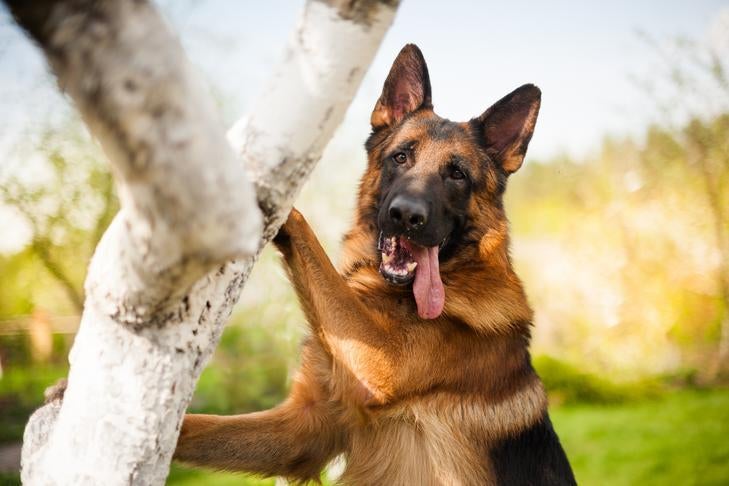
Role as a Family Pet
Adaptability to Family Environments
German Shepherds are remarkably adaptable and often find their place as beloved family pets. Their loyalty and protective nature make them a great fit for various living situations, whether it’s a spacious home with a yard or a family apartment. These dogs thrive in environments where they can engage with their family members, demonstrating a unique ability to bond deeply with their humans.
- Key Adaptability Traits:
- Versatile Living Conditions: They adjust well to both urban and rural settings.
- Exercise Needs: Regular physical activity ensures they remain happy and integrated into family life.
- Trainability: Their intelligence allows them to adapt to family routines quickly.
Just the other day, an owner shared how their German Shepherd seamlessly transitioned from a hectic day at work to an evening of family games, showcasing that these dogs truly have a knack for fitting into family dynamics.
Interaction with Children and Other Pets
Known for their affectionate and gentle nature, German Shepherds are often great companions for children. Their protective qualities make them natural guardians, ensuring kids feel safe and secure. However, early socialization is crucial to ensuring these interactions are positive.
- Family Interaction Tips:
- Supervised Play: Always supervise interactions between children and dogs to foster a comfortable relationship.
- Positive Training: Teaching basic commands helps instill respect and good behavior in both kids and dogs.
- Gentle Nature: Many owners have reported their German Shepherds being incredibly patient and loving with young children.
When one family decided to adopt a German Shepherd, they noticed how attuned their dog was to their children’s needs—playing games enthusiastically while also knowing when to be gentle. This balance makes German Shepherds not just pets but adorable family members who contribute to a loving home environment.
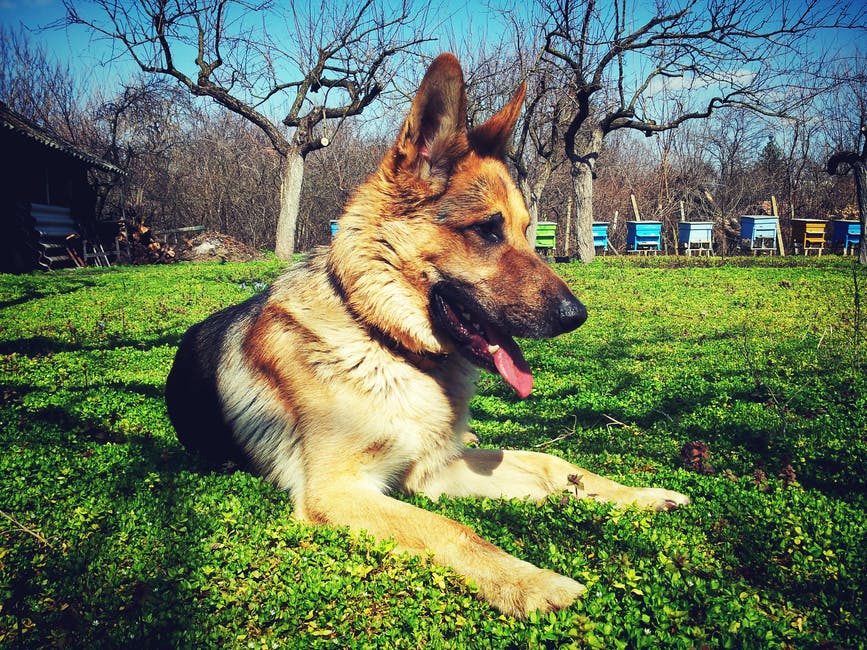
Conclusion and Final Thoughts
The German Shepherd is a remarkable breed characterized by its intelligence, loyalty, and versatility. As we’ve explored throughout this guide, these dogs are more than just skilled workers; they are loving companions that thrive in family environments. Their protective nature, coupled with their playful spirit, makes them ideal for families seeking both security and affection.
- Key Takeaways:
- Loyal Companions: Their unwavering loyalty ensures strong bonds with their human families.
- Versatile Roles: From service dogs to family pets, they excel in various roles thanks to their intelligence and trainability.
- Health Awareness: Regular vet check-ups and an active lifestyle are vital for maintaining their health.
Whether you’re considering adding a German Shepherd to your family or simply appreciate their qualities, it’s clear that this breed can bring joy and companionship. As one owner reminisced, “Having a German Shepherd has enriched my life with unconditional love and adventure.” With the right care and commitment, you’ll find that a German Shepherd can truly be a family member for life.

Leave a Reply